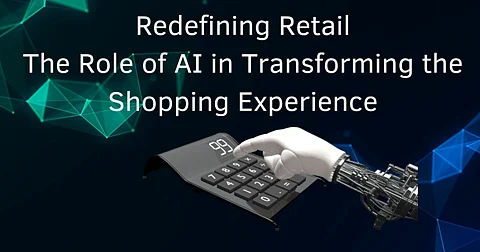

Retail is undergoing a seismic shift, with artificial intelligence (AI) at the forefront of innovation. Praveen Payili’s analysis underscores AI’s transformative power in reshaping customer interactions, streamlining operations, and redefining the commerce landscape. By harnessing AI technologies, retailers are adapting to evolving consumer expectations and meeting the challenges of an increasingly competitive marketplace.
AI has revolutionized personalized shopping, creating tailored experiences for consumers. Machine learning algorithms analyze vast data sets, including preferences, purchase history, and behavioral patterns, to deliver precise product recommendations. These systems ensure suggestions are timely and relevant, enhancing the overall customer experience.
Dynamic pricing models powered by deep learning further personalize retail. By adjusting prices based on demand, competitor analysis, and purchasing trends, retailers maximize profits and improve customer satisfaction. This adaptive approach aligns consumer expectations with business objectives, highlighting AI’s transformative potential in retail.
Modern AI assistant and chatbot solutions help organizations serve their customers speedily while cutting operational spending. Our systems maintain human communication because they use conversational AI to interpret conversations and test emotions.
Voice commerce technology simplifies shopping by accepting basic spoken instructions. The new system helps customers connect to the business faster which strengthens sales results. Sentiment analysis tools help retailers analyze feedback better as they identify performance weaknesses while strengthening customer contacts.
Artificial Intelligence now makes inventory management much more effective. Predictive analytics helps companies determine exactly how much product to stock for better inventory performance. Automation improves warehouse operations by tracking product movements better and fixing natural work errors.
Through AI systems organizations now detect potential supply chain problems to determine better shipping paths. New technologies help lower expenses while decreasing our carbon footprint to help protect the planet. Our delivery times get faster and our customers are happier while also helping the environment.
AI search systems enable users to find products by uploading pictures instead of keywords. Ascendency shake-ups the fashion and home décor industries since today's customers mostly depend on images to make purchases.
Through augmented reality customers can see digital items superimposed on their actual surroundings. AR technology helps shoppers make better decisions about purchases by letting them see how products look and fit in different situations. When AI improves these technologies it helps businesses achieve better customer interactions and better sales results.
AI plays a vital role in fraud prevention by analyzing transaction data in real time to identify suspicious patterns. These systems reduce financial losses while protecting sensitive customer information.
Identity verification technologies, including facial recognition and behavioral biometrics, bolster transaction security. They ensure seamless and secure shopping experiences, fostering trust between retailers and consumers. As AI evolves, its contribution to retail security will become even more indispensable.
While AI offers significant advantages, its adoption in retail comes with challenges. High implementation costs, technical complexities, and concerns around data privacy, ethics, and compliance can hinder progress. However, as Payili highlights, the benefits far outweigh these barriers.
Through transparent practices and responsible implementation, retailers can leverage AI to build trust, drive innovation, and ensure long-term growth. Addressing these challenges thoughtfully positions businesses for success in a technology-driven retail environment.
Praveen Payili’s insights make it clear that AI in retail is more than a technological upgrade—it’s a reimagination of the shopping experience. By delivering personalized recommendations, enhancing operational efficiency, and driving innovation, AI empowers retailers to exceed consumer expectations in a dynamic market. Responsible adoption ensures a sustainable, customer-focused, and efficient retail ecosystem, fostering growth and trust among all stakeholders.
